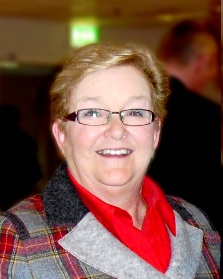Nestorianism is a Christian theological doctrine that upholds several distinctive teachings in the fields of Christology and Mariology. It opposes the concept of hypostatic union and emphasizes a radical distinction between two natures of Jesus Christ. This Christological position is defined as radical dyophisitism. Nestorianism was named after Christian theologian Nestorius (386–450), Patriarch of Constantinople from 428 to 431, who was influenced by Christological teachings of Theodore of Mopsuestia at the School of Antioch.
Presbyterian polity is a method of church governance typified by the rule of assemblies of presbyters, or elders. Each local church is governed by a body of elected elders usually called the session or consistory, though other terms, such as church board, may apply. Groups of local churches are governed by a higher assembly of elders known as the presbytery or classis; presbyteries can be grouped into a synod, and presbyteries and synods nationwide often join together in a general assembly. Responsibility for conduct of church services is reserved to an ordained minister or pastor known as a teaching elder, or a minister of the word and sacrament.

Nestorius was Archbishop of Constantinople from 10 April 428 to August 431, when Emperor Theodosius II confirmed his condemnation by the Council of Ephesus on 22 June.

A teacher is a person who helps others to acquire knowledge, competences or values.

The Governor-General of India was originally the head of the British administration in India and, later, after Indian independence in 1947, the representative of the Indian head of state. The office was created in 1773, with the title of Governor-General of the Presidency of Fort William. The officer had direct control only over Fort William, but supervised other East India Company officials in India. Complete authority over all of British India was granted in 1833, and the official came to be known as the "Governor-General of India".
John Robert Beggs, commonly known as Roy Beggs, is a Northern Ireland politician.
The magisterium of the Catholic Church is the church's authority or office to give authentic interpretation of the Word of God, "whether in its written form or in the form of Tradition." According to the 1992 Catechism of the Catholic Church, the task of interpretation is vested uniquely in the Pope and the bishops, though the concept has a complex history of development. Scripture and church tradition "make up a single sacred deposit of the Word of God, which is entrusted to the Church", and the magisterium is not independent of this, since "all that it proposes for belief as being divinely revealed is derived from this single deposit of faith."
Qualified teacher status is required in England and Wales to work as a teacher of children in state schools under local authority control, and in special education schools. A similar status exists under a different name in Scotland and Northern Ireland.

Niamh Síle Bhreathnach is a former Irish Labour Party politician who served as Minister for Education from 1993 to 1994 and 1994 to 1997. She served as a Teachta Dála (TD) for the Dún Laoghaire constituency from 1992 to 1997. She was a Senator from June 1997 to July 1997, upon being Nominated by the Taoiseach.
The infallibility of the Church is the belief that the Holy Spirit preserves the Christian Church from errors that would contradict its essential doctrines. It is related to, but not the same as, indefectible, that is, she remains and will remain the Institution of Salvation, founded by Christ, until the end of the world." The doctrine of infallibility is premised on the authority Jesus granted to the apostles to "bind and loose" and particularly the promises to Peter in regard to papal infallibility.

Royal Stoke University Hospital is a teaching and research hospital at Hartshill in the English county of Staffordshire. It lies in the city of Stoke-on-Trent, near the border with Newcastle-under-Lyme, and is one of the largest hospitals in the country and a major local employer, with over 6,000 staff. It is run by the University Hospitals of North Midlands NHS Trust.
The general council of an ancient university in Scotland is the corporate body of all graduates and senior academics of each university. They were instituted by the Universities (Scotland) Act 1858, but each has had its constitution and organisation considerably altered by subsequent statutes.

The Assemblies of God USA (AG), officially the General Council of the Assemblies of God, is a Pentecostal Christian denomination in the United States founded in 1914 during a meeting of Pentecostal ministers at Hot Springs, Arkansas. It is the U.S. branch of the World Assemblies of God Fellowship, the world's largest Pentecostal body. With a constituency of over 3 million, the Assemblies of God was the ninth largest Christian denomination and the second largest Pentecostal denomination in the United States in 2011.

Catholic ecumenical councils include 21 councils over a period of some 1900 years. While definitions changed throughout history, in today's Roman Catholic understanding ecumenical councils are assemblies of Patriarchs, Cardinals, residing Bishops, Abbots, male heads of religious orders and other juridical persons, nominated by the Pope. The purpose of an ecumenical council is to define doctrine, reaffirm truths of the Faith, and extirpate heresy. Council decisions, to be valid, are approved by the popes. Participation is limited to these persons, who cannot delegate their voting rights.
Robert Malcolm Brian West, is a British National Party (BNP) activist and founder of the Christian Council of Britain.

The Department for Education (DfE) is a department of Her Majesty's Government responsible for child protection, education, apprenticeships and wider skills in England.
Jonathan Michael Goodall is a Church of England bishop. Since 2013, he has been the Bishop of Ebbsfleet, a suffragan bishop who is the provincial episcopal visitor for western half of the Province of Canterbury in the Church of England. He is an Anglo-Catholic and ministers to those 'within the spectrum of Anglican teaching and tradition' who are 'unable to receive the ministry of women as bishops or priests.'








